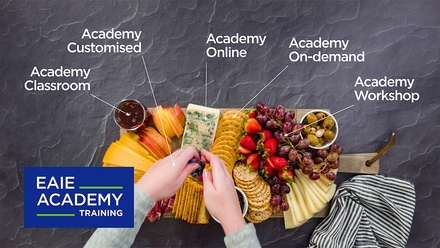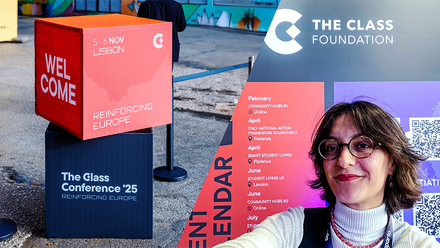Employability for the 21st century

It is hard to deny that employability is a hot topic in higher education. And yet, discussions around employability within the academy are never without controversy. To what extent must higher education prepare students for employment? Does a period of outbound mobility boost a student’s career prospects after graduation? If so, is it important what type of outbound mobility the student has chosen?
With the everyday employment of many thrown into disarray by COVID-19 and mounting concerns about the coming global recession, there could not be a better time for Forum magazine to look in more depth at employability for the next century and its multiple connections with international higher education.
Paving new career paths
In this edition, authors from Europe and further afield have looked at employability from a range of angles and share their insights on some of the key questions facing international educators in relation to employability skills and graduate attributes, to the role of mobility in preparing students for the workplace, and to the graduate employment outcomes of international students. I am delighted that Rajika Bhandari (now President and CEO of the IC3 Institute, whose mission is to enable access to career and college counselling for high school students around the world) accepted the EAIE’s invitation to be interviewed for this edition. Reflecting specifically on graduate skills, Rajika highlights the “ability to pivot” as a significant skill for future careers. I believe this will resonate with many readers, given that so many of us have pivoted to working from home over the last weeks and months. Reflecting specifically on graduate skills, Rajika highlights the “ability to pivot” as a significant skill for future careers. I believe this will resonate with many readers, given that so many of us have pivoted to working from home over the last weeks and months.
Beyond the interview, this edition features a series of articles which explore graduate attributes and intercultural skills, including reflections from Liliana Gonzalez on key steps to skill development for operating in different cultural settings, and a “serious game” to boost intercultural skills for the future job market outlined by Sabine Sainte-Rose, Fabienne Munch and Anne Bartel-Radic. Bilingual Bachelor's degrees at the University of Helsinki provide a clear example of how cross-cultural communication and language skills can be embedded at the curriculum level, as outlined by Åsa Mickwitz, Dragana Cvetanović and Heini Lehtonen. Jessica Schüller then highlights how a binational Turkish-German university has adopted a holistic institutional strategy for developing graduate employability.
Another cluster of articles looks at the particular set of employability concerns faced by international students and their institutions, not least the predominant focus on post-study work rights for international graduates. Brett Berquist provides an overview of this topic, and Gabi Binnie then shines a spotlight on the UK and its framework of support for international student employability. Louise Nicol and Vicky Lewis, on the other hand, question whether institutions are ready to actively prioritise graduate outcomes and employability for international students, while Maria Gallo and Sandra Rincón advocate for greater engagement with alumni networks in support of both institutions and students.
The road ahead
Rounding out this edition are a number of articles looking in greater depth at employability through particular lenses. Taking Italy as her example, Elena Borsetto questions how universities can support student employability in countries with high unemployment rates. Meanwhile, Natalia Österman takes a disciplinary approach, looking at the ins and outs of employment for nursing graduates. Davina Potts then seeks to reframe our understandings of learning abroad and its tie-in with gains in employability skills.
Closing out this edition, Scott Blair encourages us to think differently about the connections between employment and international higher education, pointing to the urgent need for the greening of employability. With growing reflections on how COVID-19 might be re-shaping approaches to work around the world, this final article encourages international educators to adjust their thinking to better prepare students for the workforce of tomorrow, rather than the workforce of today.






